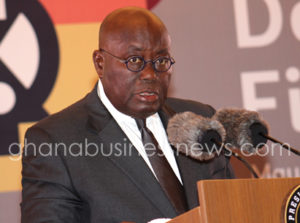Ghana reviews COVID-19 protocols, cancels mandatory PCR and antigen tests for fully vaccinated travellers

…Land borders open, and wearing of face masks no more mandatory
Ghana has reviewed COVID-19 protocols, the President announced in a broadcast Sunday March 27, 2022. The President Nana Akufo-Addo announced that from March 28, 2022, all of the country’s land borders that have been closed for two years will be opened, wearing face masks will also not be mandatory.
He also announced that fully vaccinated travellers leaving Ghana, won’t be required to present negative PCR test results and neither would fully vaccinated travellers arriving at the Kotoka International Airport be required to do the mandatory antigen test.
“From tomorrow, Monday, March 28, the wearing of face masks is no longer mandatory. I encourage all of you, though, to continue to maintain enhanced hand hygiene practices, and avoid overcrowded gatherings.
All in-person activities, such as those that take place in churches, mosques, conferences, workshops, private parties and events, cinemas and theatres may resume at full capacity, as long as the audience and/or participants are fully vaccinated. Hand washing and hand sanitising points should be made available at these venues,” he said.
He also announced that outdoor functions at sporting events, entertainment spots, political rallies and funerals may resume at full capacity, again, as long as all persons at these events are fully vaccinated.
He added that the government will continue to engage all religious and traditional leaders, agencies and institutions to encourage their congregants, subjects and citizens, respectively, to be vaccinated, to help achieve the 20 million target by June 2022.
“I will also urge the media to support this campaign,” he said.
According to the President the measures were imposed to limit the importation of the virus into the country, especially because the first cases of the virus were imported through the Kotoka International Airport.
“From tomorrow, Monday, March 28, fully vaccinated travellers into Ghana will not take PCR tests from the country of embarkation to allow them entry into the country through the KIA, and will not be tested on arrival. Citizens and foreign residents in Ghana, who are not fully vaccinated, would, however, need to provide a negative PCR test result of not more than 48-hours, will undergo an antigen test upon arrival at the airport, and will be offered vaccination there. Ghana’s Foreign Missions have been instructed to make vaccination a requirement for visa acquisition,” he said.
The reasons he gave for the review is that there are rapidly declining infections, the relative success of the vaccination campaign being supervised by the Ghana Health Service, and the increased capacity developed in the public and private health sectors over the last two years.
According to the President, as at Friday, March 25, 2022, the total number of active COVID-19 cases stood at 72.
“There are no severely or critically ill persons. Our COVID-19 treatment centres are empty, and the fourth wave appears to be over. In addition to these very low reported cases is the considerable improvement in the availability and uptake of vaccines by the population.
Whilst we have not achieved our national vaccination coverage target, it is significant to note that reasonable vaccination coverages have been achieved in the hotspots of infections, particularly in the urban areas of Greater Accra and Greater Kumasi. Government is determined to use all means to increase the deployment of vaccination across the country to achieve our target of vaccinating some 20 million Ghanaians by June,” he said.
He therefore urged all Ghanaians who have not received the jab, to take it.
“To those listening to the propaganda by the conspiracy theorists and those who are still sceptical about the efficacy of the vaccine, it has been a year since my wife and I got vaccinated; it has not disrupted our physical wellbeing, neither has it caused us to be sick. We are, touch wood, hale and hearty, like the other 13.1 million Ghanaians who have been vaccinated,” he said.
He also noted that with countries in the ECOWAS Community, especially Ghana’s neighbours recording very low levels of infections, and having significant numbers of Ghanaians vaccinated, and on the advice of the national COVID-19 Taskforce and the health experts, he has taken the decision to revise the COVID-19 Restrictions, enacted under E.I. 64.
He thanked that the leadership and membership of the Ghana Health Service, all other health workers, and members of the COVID-19 taskforce for the outstanding work they have done.
He also thanked the security services, public and private sector agencies, religious and chieftaincy institutions, charitable organisations.
BY Emmanuel K. Dogbevi
